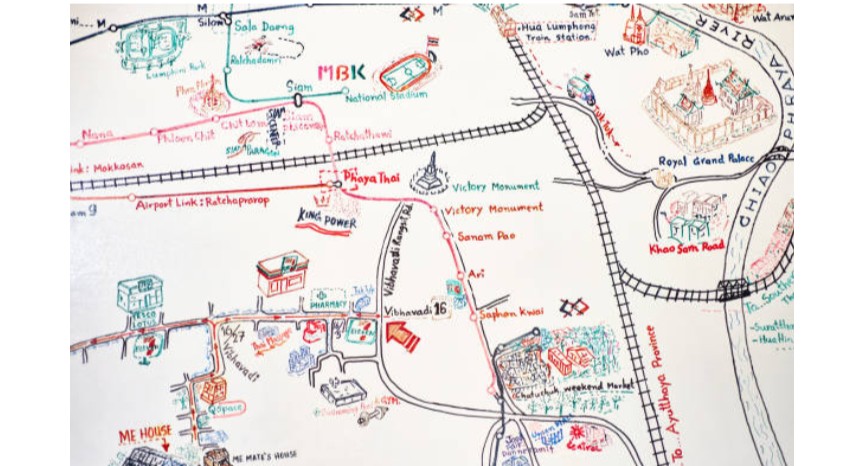
This comprehensive training course provides participants with a foundational understanding of cartography and the essential principles of effective map design. It delves beyond simply making maps to teaching the art and science of visual communication through geospatial data. Participants will learn how to transform raw geographic information into clear, compelling, and informative maps that effectively convey their intended message to diverse audiences. The course emphasizes both theoretical concepts and practical application, allowing participants to develop visually appealing and functionally robust maps.
The curriculum covers a wide array of topics, starting with the history of cartography and the fundamentals of geographic data representation. It then progresses through the critical elements of map design, including visual variables, color theory, typography, and map layout composition. Participants will explore various thematic mapping techniques, gain an introduction to interactive and web cartography, and learn about cartographic generalization and data abstraction. The course culminates in practical sessions focused on applying these principles to create high-quality maps and critically evaluate existing designs.
Who should attend the training
Objectives of the training
Personal benefits
Organizational benefits
Training methodology
Trainer Experience
Our trainers are accomplished cartographers and geospatial visualization experts with extensive experience in both academic instruction and professional map design. They possess a deep understanding of cartographic theory, graphic design principles, and practical application using various GIS and design software. Our instructors are passionate about the art and science of mapping and committed to providing a dynamic, engaging, and highly practical learning environment. They bring real-world design challenges and solutions into the classroom.
Quality Statement
We are committed to delivering a high-quality training program that focuses on the core principles of effective cartography and map design. Our course content is meticulously crafted, regularly updated to reflect current design trends and best practices, and delivered by expert instructors. We strive to create an engaging and supportive learning environment that empowers participants to produce visually compelling, accurate, and highly communicative maps.
Tailor-made courses
We offer customized training solutions to meet the specific mapping and design needs of your organization. We can adapt the course content, duration, and practical exercises to align with your industry, data types, and design objectives, ensuring a highly relevant and impactful learning experience for your team.
Course Duration: 5 days
Training fee: USD 1300
Requirements:
· Participants should be reasonably proficient in English.
· Applicants must live up to Armstrong Global Institute admission criteria.
Terms and Conditions
1. Discounts: Organizations sponsoring Four Participants will have the 5th attend Free
2. What is catered for by the Course Fees: Fees cater for all requirements for the training – Learning materials, Lunches, Teas, Snacks and Certification. All participants will additionally cater for their travel and accommodation expenses, visa application, insurance, and other personal expenses.
3. Certificate Awarded: Participants are awarded Certificates of Participation at the end of the training.
4. The program content shown here is for guidance purposes only. Our continuous course improvement process may lead to changes in topics and course structure.
5. Approval of Course: Our Programs are NITA Approved. Participating organizations can therefore claim reimbursement on fees paid in accordance with NITA Rules.
Booking for Training
Simply send an email to the Training Officer on training@armstrongglobalinstitute.com and we will send you a registration form. We advise you to book early to avoid missing a seat to this training.
Or call us on +254720272325 / +254725012095 / +254724452588
Payment Options
We provide 3 payment options, choose one for your convenience, and kindly make payments at least 5 days before the Training start date to reserve your seat:
1. Groups of 5 People and Above – Cheque Payments to: Armstrong Global Training & Development Center Limited should be paid in advance, 5 days to the training.
2. Invoice: We can send a bill directly to you or your company.
3. Deposit directly into Bank Account (Account details provided upon request)
Cancellation Policy
1. Payment for all courses includes a registration fee, which is non-refundable, and equals 15% of the total sum of the course fee.
2. Participants may cancel attendance 14 days or more prior to the training commencement date.
3. No refunds will be made 14 days or less before the training commencement date. However, participants who are unable to attend may opt to attend a similar training course at a later date or send a substitute participant provided the participation criteria have been met.
Tailor Made Courses
This training course can also be customized for your institution upon request for a minimum of 5 participants. You can have it conducted at our Training Centre or at a convenient location. For further inquiries, please contact us on Tel: +254720272325 / +254725012095 / +254724452588 or Email training@armstrongglobalinstitute.com
Accommodation and Airport Transfer
Accommodation and Airport Transfer is arranged upon request and at extra cost. For reservations contact the Training Officer on Email: training@armstrongglobalinstitute.com or on Tel: +254720272325 / +254725012095 / +254724452588
| Course Dates | Venue | Fees | Enroll |
|---|---|---|---|
| Feb 23 - Feb 27 2026 | Zoom | $1,300 |
|
| May 04 - May 15 2026 | Nairobi | $3,000 |
|
| Mar 02 - Feb 06 2026 | Kigali | $2,500 |
|
| Apr 06 - Apr 10 2026 | Kampala | $2,500 |
|
| Feb 09 - Feb 13 2026 | Dubai | $5,000 |
|
| Jan 26 - Jan 30 2026 | Johannesburg | $4,500 |
|

Armstrong Global Institute
Typically replies in minutes